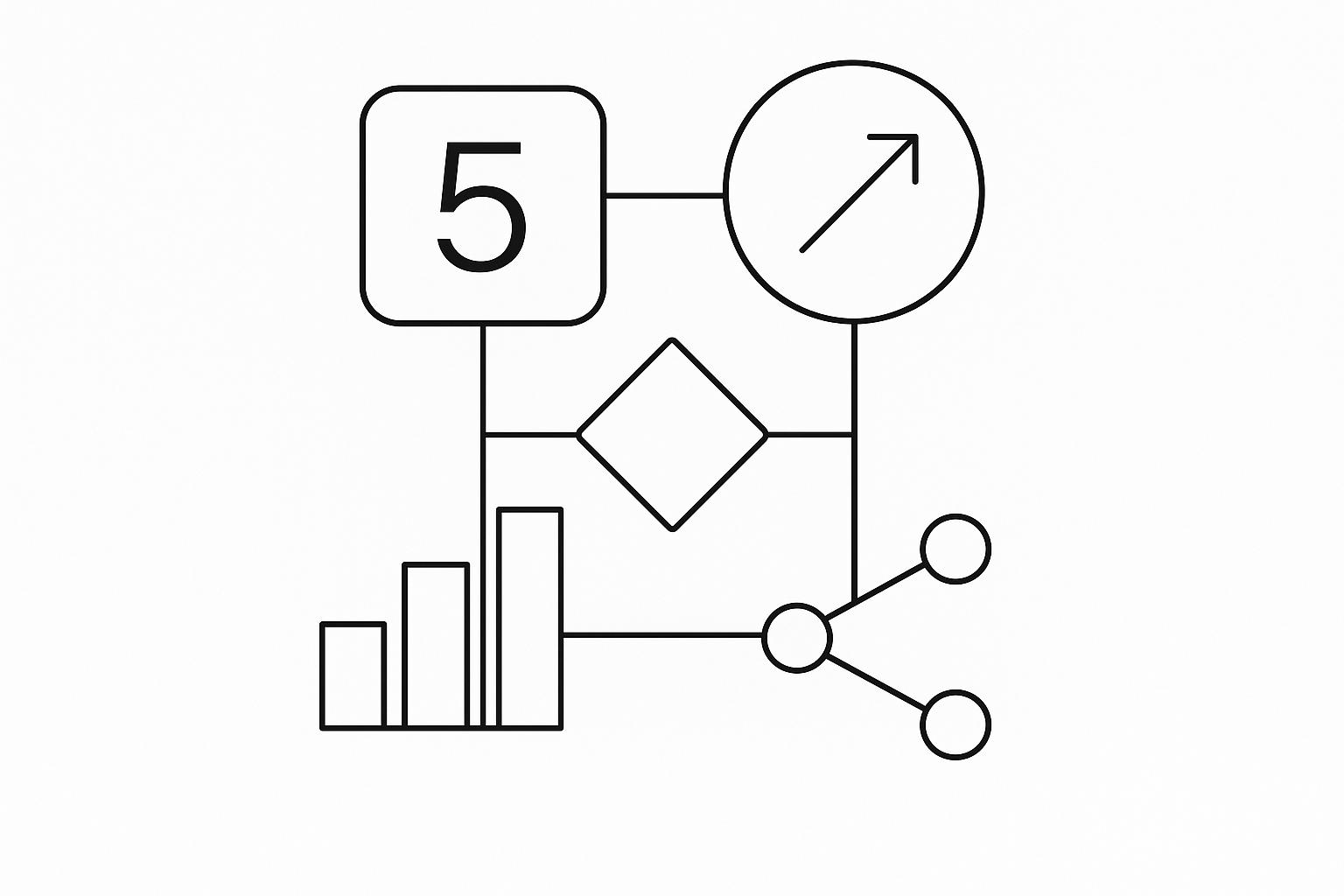In the modern business landscape, companies have more options than ever for managing their marketing efforts. The two most common models are the agency model and the operator’s mindset, each offering distinct advantages and approaches. However, while agencies focus on delivering short-term results, an operator’s mindset emphasizes long-term growth, strategic alignment, and operational integration.
In this article, we’ll compare these two models and explain why the Experiment-Driven Growth Model offers the best of both worlds by blending strategic oversight with data-driven experimentation, ensuring your business scales efficiently and sustainably.
The Agency Model: Focused on Short-Term Results
The traditional agency model is designed to deliver specific, measurable outcomes within a defined scope. Whether it’s generating leads, driving website traffic, or increasing conversions, agencies are typically hired to execute on specific marketing tasks. They specialize in delivering quick wins, often through paid media, SEO, or content marketing strategies.
Strengths of the Agency Model:
- Specialized Expertise: Agencies often have teams dedicated to specific marketing areas, such as SEO, PPC, or social media, providing clients with focused knowledge.
- Task-Oriented Execution: Agencies are built to implement campaigns quickly and efficiently, aiming to meet immediate goals like increasing leads or improving brand awareness.
- Predictable Deliverables: Agencies operate on clear KPIs and deliver short-term results like lead generation, traffic increases, and ROAS (Return on Ad Spend).
However, agencies tend to work in silos, often disconnected from the company's internal processes and long-term strategic goals. Their focus is typically on short-term metrics rather than on integrating marketing efforts into a broader business strategy. Once a campaign concludes, the responsibility to tie the results back into the overall business often falls back on the company.
Limitations of the Agency Model:
- Lack of Integration: Agencies are external partners and can struggle to integrate their campaigns with the business’s internal operations.
- Focus on Short-Term Metrics: The agency’s primary goal is often to meet short-term KPIs like leads, clicks, or conversions, without considering how these metrics contribute to long-term growth.
- Ownership Gaps: Agencies don’t typically take ownership of the long-term impact of their work, leaving it to the client to bridge the gap between marketing and business goals.
The Operator’s Mindset: Long-Term Growth & Strategic Integration
The operator’s mindset takes a fundamentally different approach. Instead of focusing solely on immediate results, this model looks at how marketing, data, and business operations align to drive sustainable, long-term growth. The operator’s mindset is all about taking ownership of the entire marketing process—ensuring that every tactic and strategy contributes to the company’s long-term vision.
What is the Operator’s Mindset?
The operator’s mindset centers around two core roles:
- Marketing Business Operator (typically a CMO or equivalent senior leader): The strategic leader responsible for high-level business objectives and ensuring that marketing aligns with the company’s long-term goals. This role holds decision-making power and oversees the overall direction of the marketing efforts.
- L-Shaped Growth Operator: A role that combines cross-functional marketing expertise with deep specialization in data-driven experimentation. The Growth Operator drives continuous testing, optimization, and scaling of successful marketing initiatives, aligning short-term tactics with long-term goals.
The Growth Operator and Marketing Business Operator work together, ensuring that all marketing efforts are integrated into the company’s overall operational strategy. Unlike the task-focused agency model, the operator’s mindset involves continuous collaboration between marketing and the rest of the business to achieve sustainable growth.
The Experiment-Driven Growth Model: The Best of Both Worlds
At Experimentdriven.expert, we’ve developed the Experiment-Driven Growth Model, which blends the best aspects of both the agency model and the operator’s mindset. This approach integrates data-driven experimentation with long-term strategic oversight, ensuring that every marketing campaign contributes to scalable, sustainable growth.
Why This Model Was Developed
We saw clear gaps in the traditional models:
- Agencies were focused on short-term wins, often disconnected from the company’s long-term vision.
- In-house teams lacked the agility to run fast experiments and optimize multiple marketing channels efficiently.
- CMOs and Business Operators were stretched too thin, forced to manage both high-level strategy and granular marketing execution, leading to inefficiencies.
The Experiment-Driven Growth Model addresses these gaps by creating a more integrated, agile structure where:
- The Marketing Business Operator holds the strategic vision, making high-level decisions that guide the company’s overall direction.
- The L-Shaped Growth Operator drives rapid experimentation, testing, and scaling of successful marketing strategies, while ensuring alignment with business objectives.
This model ensures that every marketing initiative is directly tied to the business’s overarching goals, providing continuous growth without the siloed approach of traditional agencies.
Naming Conventions & Definitions
To understand the model fully, here are the key roles and concepts that define the Experiment-Driven Growth Model:
- Marketing Business Operator (CMO role): A senior leader within the company (often the CMO or a similar role) responsible for high-level marketing strategy and long-term business objectives. This person holds the final decision-making power but relies on the Growth Operator to execute and optimize marketing strategies.
- L-Shaped Growth Operator: A marketing leader with broad, cross-functional knowledge (SEO, paid media, content, etc.) and deep specialization in experimentation and data-driven strategy. This role coordinates marketing efforts, optimizes campaigns, and drives continuous growth through testing and data analysis.
- Agency Model: A traditional external service provider focused on executing marketing campaigns for short-term results, often detached from the internal business strategy and operations.
- Experimentation Framework: A systematic approach used by Growth Operators to test marketing strategies, analyze data, and rapidly scale successful experiments to align with long-term business goals.
- Operator’s Mindset: A growth philosophy focused on taking full ownership of marketing and operational processes, ensuring all efforts are aligned with the company’s long-term strategy.
Why the Operator’s Mindset Drives Better Results
By taking full ownership of both the short-term marketing tactics and the long-term business objectives, the operator’s mindset provides several key advantages over the agency model:
- Strategic Alignment: All marketing efforts are directly connected to the company’s long-term vision, ensuring consistency and scalability.
- Operational Efficiency: The Growth Operator bridges the gap between marketing, data, and business operations, ensuring that every initiative is optimized for maximum efficiency.
- Continuous Growth: Through constant experimentation and data analysis, the operator’s mindset drives sustained growth, unlike agencies that may focus on one-off campaigns.
- Ownership Mentality: Growth Operators take full responsibility for the success or failure of marketing initiatives, ensuring continuous optimization and alignment with business goals.
Conclusion: Choosing the Right Approach for Your Business
While agencies excel at providing specialized expertise and delivering quick wins, their short-term focus can often leave businesses struggling to tie these efforts into a broader growth strategy. In contrast, the operator’s mindset, as embodied by the Experiment-Driven Growth Model, provides a holistic approach that combines long-term strategic oversight with data-driven experimentation. By integrating marketing, data, and operations, this model ensures that businesses not only grow quickly but grow sustainably.
If you’re looking for an approach that drives long-term, scalable results, it’s time to embrace the operator’s mindset.
Contact us today at hello@experimentdriven.expert to learn more about how we can help your business move beyond short-term campaigns and embrace sustainable growth.

